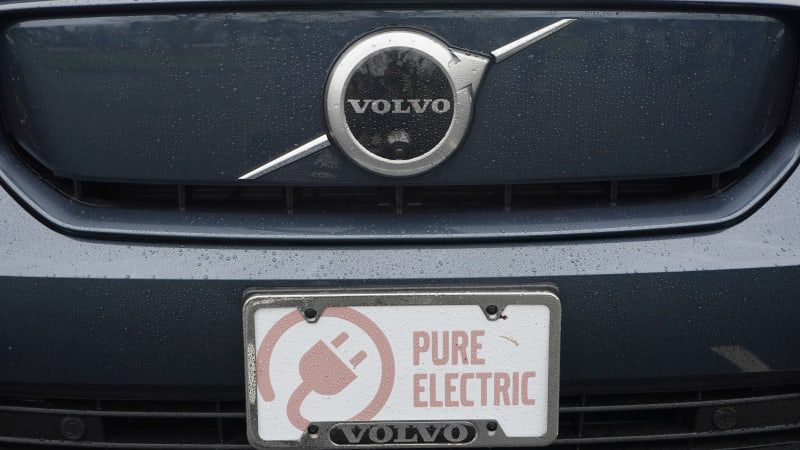Volvo to create 3,300 jobs at $1.25 billion EV plant in Slovakia

BRATISLAVA, Slovakia — Swedish luxury vehicle maker Volvo Cars plans to build a new European plant in eastern Slovakia, the country’s economy minister said Friday.
Volvo’s third European plant will be located in Kosice, Slovakia’s second-largest city, Economy Minister Richard Sulik said. Volvo will receive about 20% of the 1.2 billion euros ($1.25 billion) needed for the project as support from the Slovak government.
The plant is expected to produce some 250,000 electric cars a year and to create some 3.300 jobs. Construction is scheduled to begin next year and production to start in 2026.
Germany’s Volkswagen, France’s PSA Peugeot Citroen, South Korea’s Kia Motors Corp. and U.K.-based Jaguar Land Rover already have major plants in Slovakia, a Central European country of 5.5 million people.
Volvo’s plant will be the fifth there, and will bolster the country’s standing as the biggest car producer per capita in the world, with the central European country of 5.4 million producing more than 1 million cars in 2021.
For Volvo Cars, it will be its third plant in Europe and will build EVs only, in line with the company’s ambition to produce EVs exclusively by the end of this decade.
The European Union aims to phase out new fossil fuel car sales by 2035.
“Expansion in Europe, our largest sales region, is crucial to our shift to electrification and continued growth,” Chief Executive Jim Rowan said in a statement.
The area targeted for the plant has long had high unemployment compared with the western part of the country.
“I am very pleased that Slovakia succeeded in the competition for this mega investment that will bring development and many jobs to the east of Slovakia,” Economy Minister Richard Sulik said in a statement.
Volvo Cars’ other European plants are in Belgium and Sweden.
Its output last year rose by 5.6% to almost 700,000 automobiles, of which 27% were either fully electric or plug-in hybrids.
The company, which is majority-owned by China’s Geely Holding, listed on Nasdaq Stockholm last October.
Includes material from Reuters.




